
Enrico Ruggeri is an Italian singer-songwriter.

Ivano Alberto Fossati is an Italian pop singer from Genoa. He was a member of the progressive rock group Delirium and has worked with Fabrizio De André, Riccardo Tesi, Anna Oxa, Mia Martini, Ornella Vanoni, Shirley Bassey, Francesco De Gregori, Menudo and Mina.

Ardengo Soffici was an Italian writer, painter, poet, sculptor and intellectual.
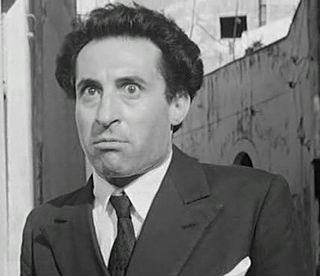
Leopoldo Trieste was an Italian actor, film director and script writer.

Foro Italico is a sports complex in Rome, Italy, on the slopes of Monte Mario. It was built between 1928 and 1938 as the Foro Mussolini under the design of Enrico Del Debbio and, later, Luigi Moretti. Inspired by the Roman forums of the imperial age, its design is lauded as a preeminent example of Italian fascist architecture instituted by Mussolini. The purpose of the prestigious project was to get the Olympic Games of 1940 to be organised by fascist Italy and held in Rome.

The Stadio dei Marmi is one of four stadiums in the colossal sports complex the Foro Italico, initially named Foro Mussolini. The other stadiums are the Stadio Olimpico, the Stadio del tennis Romano, and the Stadio Olimpico del Nuoto. It was designed in the 1920s as a complement to the annexed Fascist Academy of Physical Education, to be used by its students for training. The Stadio dei Marmi first opened in 1932, on the 10th anniversary of the March on Rome, near the Roman neighborhood Monte Mario, by the architect Enrico Del Debbio under the Fascist ruler Benito Mussolini. The Stadio dei Marmi is encircled by sixty, 4-meter tall classical statues of athletes made from Carrara marble. The stadium was built to celebrate Fascist accomplishments and the Gioventú del Littorio, the youth movement of the National Fascist Party of Italy. In its twenty-year reign, the Fascist regime used sports to introduce and instill new fascist traditions, ideals, customs, and values, with the goal of forming citizen warriors. The Stadio dei Marmi was used to host some of the field hockey preliminaries for the 1960 Summer Olympics and also hosted the opening ceremony for the 2009 World Aquatics Championships.

Maria Rita Saulle was a professor of law and a judge in the Italian Constitutional Court from November 2005 until her death on 7 July 2011.
Antonio Bueno was an Italian painter of Spanish origin, who acquired Italian citizenship in 1970. He was born in Berlin while his journalist father was posted there by the newspaper ABC of Madrid.
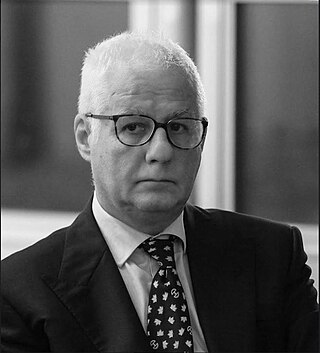
Mario Di Fiorino is an Italian psychiatrist and Director of Psychiatry at the Ospedale Versilia in Lido di Camaiore (LU), Italy till 31 May 2023. The author of numerous scientific papers and books, his main areas of research are related to mental manipulation, violence, and dissociative disorders.
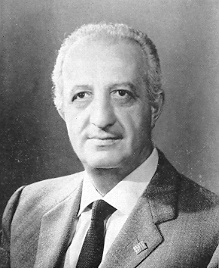
Leonetto Amadei was an Italian lawyer and a politician.
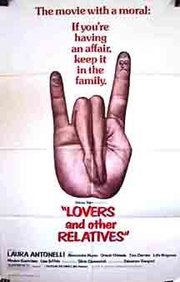
Lovers and Other Relatives, also known as Peccato veniale and Venial Sin, is a 1974 Italian comedy film directed by Salvatore Samperi.
Ernesto Treccani was a visual artist, writer and political activist.

DonnaVirginia Bourbon del Monte dei principi di San Faustino was the wife of Edoardo Agnelli and the mother of Gianni Agnelli.
Rosa Giannetta Alberoni was an Italian novelist, journalist, and professor of sociology.

The High Council of the Judiciary is an Italian institution of constitutional importance, entrusted to preside over the organisation of the Italian Judiciary. The High Council sits in the Palazzo dei Marescialli, Piazza Indipendenza 6, Rome.
Annibale Ruccello was an Italian playwright, theatre director, and actor.

Giacomo Romano Davare is an Italian writer, actor, stage director and teacher.
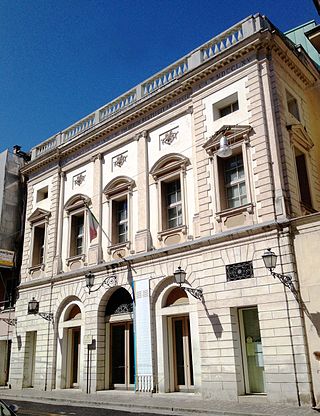
The Teatro Mario Del Monaco is an opera house and theatre in Treviso, Italy. It was previously known as the Teatro Onigo from 1692 to 1846, the Teatro Sociale from 1847 to 1930, and the Teatro Comunale from 1931 to 2011. In 2011, it was renamed in honour of the Italian tenor Mario Del Monaco who lived in Treviso from 1975 until his death in 1982. It is located in the historic centre of the city on the Corso del Popolo and since 2019 has been run by the Teatro Stabile del Veneto which also runs the Teatro Goldoni in Venice and the Teatro Verdi in Padua.
The Italian public administration, in the Italian legal system, indicates the set of public bodies belonging to the public administration of the Italian Republic.
A five-part abrogative referendum was held in Italy on 12 June 2022. Voters were asked to decide on the repeal of five articles or decrees relating to the functions of the Italian judicial system. Each of the five questions were submitted by nine Italian regions, all governed by the centre-right coalition.













